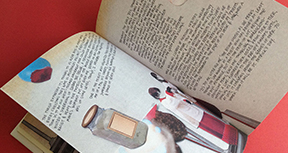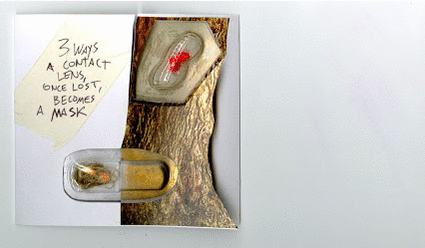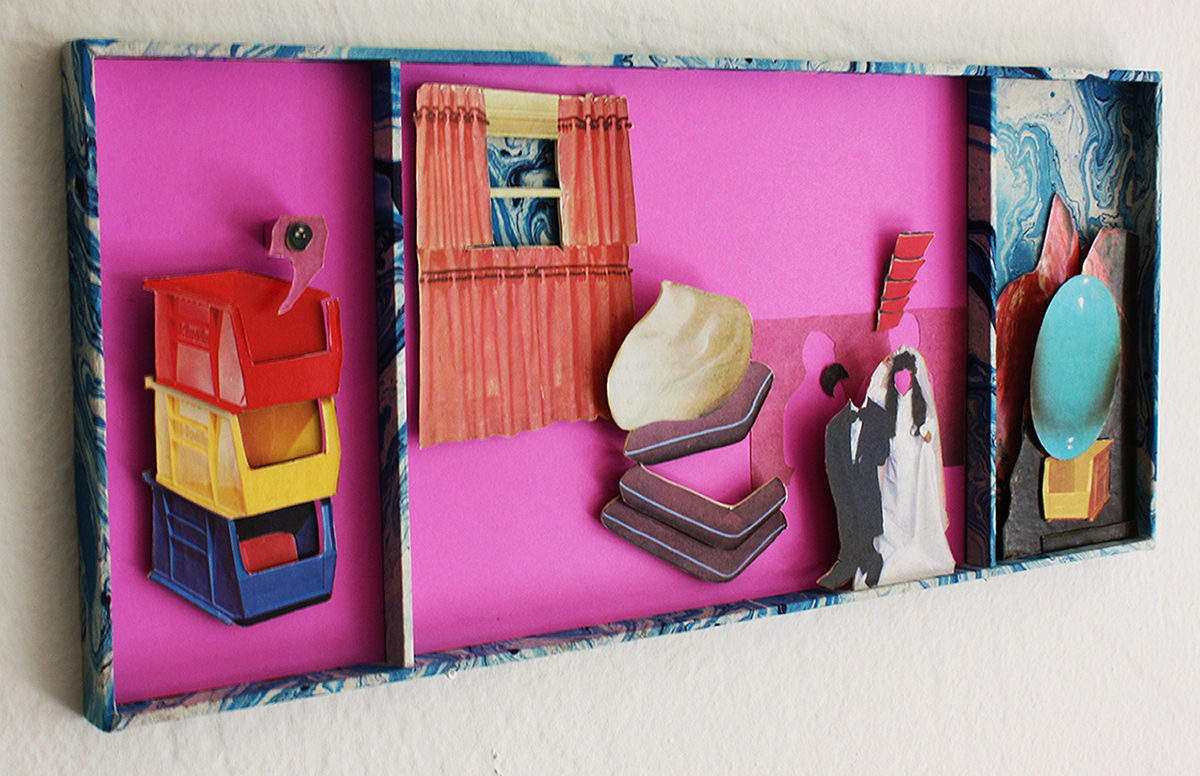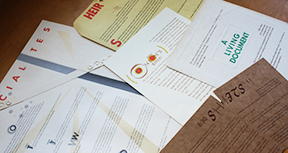WORKSHOP PROPOSALS: Matt Runkle
Contact me HERE for inquiries. The specialty workshops listed on the right are adapted from classes I've taught at Mills College, University of Iowa Center for the Book, Penland School of Crafts, San Francisco Center for the Book, and others. I also teach a range of introductory workshops in the following:
Creative Writing
(fiction, nonfiction, & hybrid genres)
Zines
Comics & Other Graphic Narratives
Sequential Collage
Letterpress
Bookbinding
Boxmaking




THE MIXED-MEDIA MEMOIR:
Building Personal Narratives from Existing Evidence
Where do words meet image in the stories we tell? How can the materials we encounter day-to-day help relate our personal narratives? In this course, we’ll look at autobiographical art by Lynda Barry, Emil Ferris, Joseph Cornell, Robert Seydel, and others, as we think about the different media we can use to tell our stories: comics and graphic novels; artist books; dioramas; sequential panels; and any number of ways to amalgamate these modes.
Participants will explore collage, low-tech printing methods, box-making, and various book structures, with a focus on incorporating found materials into our mixed-media memoirs. They will gain competencies in collage methods; low-tech printing methods such as pochoir, Xerox transfers, and gelatin printing; layout and sequential narrative; basic boxmaking skills; basic bookbinding structures; and ways of intervening and engaging with existing narratives to create new ones and shift their context/meaning.
WRITING THE VISUAL:
For Writers Who “Can’t Draw” But Wish They Could
Have you ever wanted to write a comic or graphic novel? If you were to collaborate on a work of text and image, what would your ideal illustrator look like? What aspects of your personality and experiences might mesh with the illustrator’s to be most productive in creating this work? This workshop, which is of adaptable length and intended for writers ranging from novice to experienced, helps participants learn the basics text + image-based media such as broadsides and artist's books, and asks them to experiment with modes including comics and sequential collage. A range of generative exercises will spur inspiration as we engage in some conceptual illustration and imagine our visually adept alter egos.
Participants will leave with a solid grounding in visual literacy and a range of strategies for pursuing a longer text + image work.
STORY BOX:
Creating Narrative with Relief Collage
In this one-day workshop, we'll use bookboard to build a shallow box (6" x 14" x .5") with three compartments. We'll collage imagery in each compartment: three separate scenes that connect to tell a story through chronological sequence, spatial unity, and/or some other theme. Participants can bring their own collage materials, and a range of scraps and ephemera will also be on hand. We will look at adhesive methods, explore methods for creating 3-D effects, and talk about ways of incorporating text.
Participants will leave with skills in boxmaking; composition and layout; using found objects to generate ideas; building 3-D depth and texture in collage; and creating visual narrative.
SPECULATIVE STUDIO ARCHEOLOGY:
Letterpress as Collage
Intended for those with a beginning to intermediate knowledge of typesetting and the cylinder press, this multiple-session workshop offers participants the opportunity to create a French-fold artist’s book using the generative potential of in-studio material constraints. We’ll each take a collagist’s perspective as we combine wood and metal type with found plates to generate narratives for our individual books. Not only does relying on materials at hand allow for unexpected juxtapositions, it also creates the chance to build narratives through speculating on the objects’ previous lives.
Participants receive a brief historical overview of letterpress technologies, from origins up to and after the Industrial Revolution, as well as demos in typesetting and Vandercook operation. We then build off this knowledge base with a series of experimental exercises. Depending on individual interests, each participant is assigned a type case to use as a starting point for conjuring a story. Where might this type have been housed in the past? At a newspaper or magazine? In a job printing shop? In the studio of a literary fine-press printer? What sorts of work might have been printed from it in between its casting and eventual home? As we go on to typeset and print our chosen fragments of image and text, participants can approach these questions as literally or fantastically as they like.